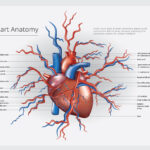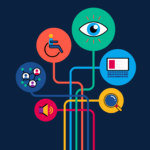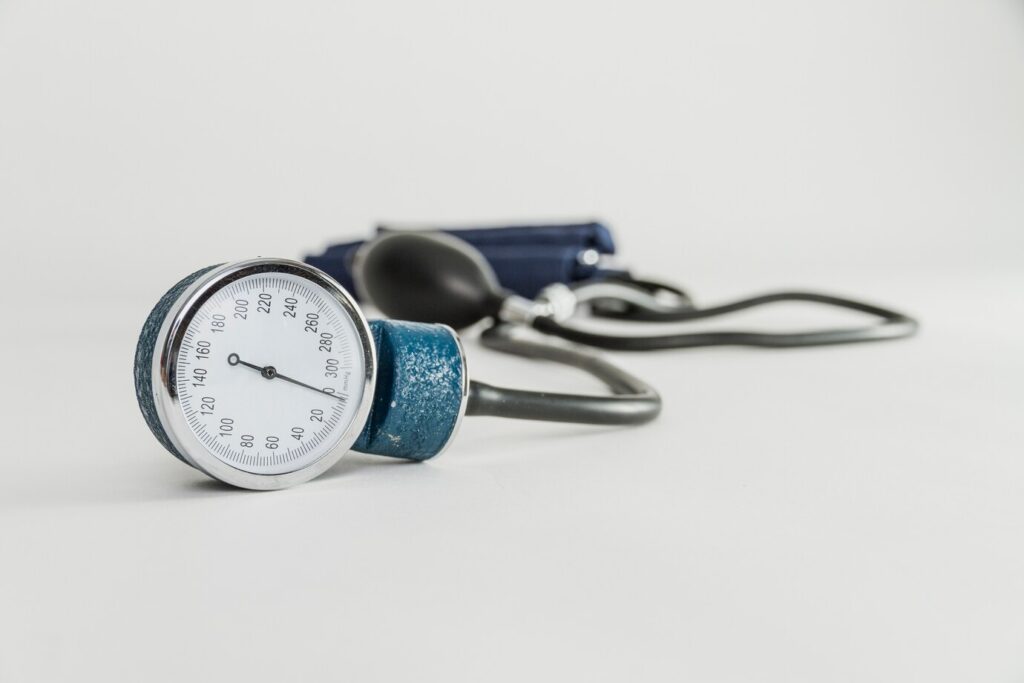Hypertension, also known as high blood pressure, is a condition that affects millions of people worldwide. It is a major risk factor for heart disease, stroke, and other cardiovascular conditions. In this article, we will provide an overview of everything you need to know about hypertension, including its definition, causes, symptoms, diagnosis, treatment, and management.
Definition and Prevalence
Hypertension is defined as a blood pressure reading of 140/90 mmHg or higher. Blood pressure is the force of blood pushing against the walls of your arteries as your heart pumps blood throughout your body.
The American Heart Association (AHA) estimates that over 100 million Americans have hypertension, and many more are at risk of developing it.
Causes
There are two types of hypertension: primary and secondary. Primary hypertension has no identifiable cause and is also known as essential hypertension. Secondary hypertension, on the other hand, is caused by an underlying medical condition or medication. Some of the common causes of secondary hypertension include:
• Kidney disease
• Adrenal gland disorders
• Thyroid problems
• Birth control pills
• Medications (e.g., NSAIDs, decongestants, and steroids)
• Alcohol and drug abuse
• Sleep apnea
• Stress
Symptoms
Hypertension is often a silent killer because it rarely has noticeable symptoms until it’s too late. The only way to know if you have hypertension is to have your blood pressure checked regularly. However, some people may experience symptoms such as:
• Headaches
• Dizziness or lightheadedness
• Blurred vision
• Nosebleeds
• Fatigue
• Confusion
• Nausea and vomiting
• Shortness of breath
• Chest pain
• Stroke
Diagnosis
Hypertension is diagnosed based on blood pressure readings taken over time. Your healthcare provider may use the following methods to diagnose hypertension:
• Blood pressure cuff: A healthcare provider will place a blood pressure cuff on your arm to measure your blood pressure.
• Electronic blood pressure monitor: This device is used to measure your blood pressure at home.
• Ambulatory blood pressure monitor: This device is used to measure your blood pressure over a 24-hour period.
Treatment and Management
Hypertension is a lifelong condition that requires ongoing treatment and management. Treatment options may include lifestyle changes, medication, or a combination of both. Lifestyle changes may include:
• Healthy diet
• Regular exercise
• Weight loss
• Stress management
• Limiting alcohol intake
• Quitting smoking
Medications used to treat hypertension include:
• Diuretics
• Beta blockers
• Angiotensin-converting enzyme (ACE) inhibitors
• Angiotensin receptor blockers (ARBs)
• Calcium channel blockers
• Alpha blockers
• Direct renin inhibitors
• Central-acting agents
It’s important to work with your healthcare provider to develop a personalized treatment plan that works best for you. Monitoring your blood pressure regularly and making healthy lifestyle changes can help you manage hypertension effectively.
Potential complications of hypertension if left untreated
Hypertension is a common condition that can lead to serious health problems if left untreated. Understanding the causes, symptoms, diagnosis, treatment, and management of hypertension can help you take control of your health and reduce your risk of complications. Remember, regular blood pressure checks and healthy lifestyle choices can help you manage hypertension effectively. If you have hypertension, work with your healthcare provider to develop a personalized treatment plan that works best for you.
Hypertension, or high blood pressure, can lead to various complications if left untreated. Some of the potential complications include:
1. Heart Attack and Stroke: High blood pressure can damage the blood vessels leading to the heart and brain, increasing the risk of heart attack and stroke.
2. Heart Failure: The heart becomes weak and cannot pump blood effectively, leading to heart failure.
3. Kidney Damage: High blood pressure can damage the blood vessels in the kidneys, leading to chronic kidney disease and even kidney failure.
4. Vision Loss: Hypertension can cause damage to the blood vessels in the eyes, leading to vision loss and even blindness.
5. Peripheral Artery Disease: The blood vessels in the legs and arms can become narrowed or blocked, leading to peripheral artery disease.
6. Sexual Dysfunction: High blood pressure can cause erectile dysfunction in men and decreased sexual desire in both men and women.
7. Memory Loss: Hypertension has been linked to an increased risk of cognitive decline and dementia.
8. Anxiety and Depression: Hypertension can contribute to anxiety and depression, especially if left untreated.
9. Sleep Apnea: High blood pressure can increase the risk of sleep apnea, a condition that causes breathing to stop and start during sleep.
10. Osteoporosis: Hypertension can increase the risk of osteoporosis, particularly in postmenopausal women.
It is essential to monitor blood pressure regularly and seek medical attention if symptoms of hypertension are present. Early detection and treatment can help prevent these potential complications and improve overall health.
The link between hypertension and cognitive decline
There is a significant link between hypertension and cognitive decline. Hypertension can affect cognitive function and increase the risk of dementia.
High blood pressure can damage blood vessels throughout the body, including those in the brain, leading to decreased cognitive performance and increased risk of dementia. Studies have shown that people with hypertension are at a higher risk of developing dementia than those without hypertension.
Damage To Blood Vessels
Hypertension can cause damage to blood vessels in the brain, leading to a decrease in cognitive function, including memory, attention, and processing speed. It’s essential for individuals with hypertension to work with their healthcare provider to manage the condition and reduce the risk of cognitive decline.
This can be done through lifestyle changes such as regular exercise, a healthy diet, stress management, and medication if necessary. Monitoring blood pressure regularly and seeking medical attention if symptoms of hypertension are present is also crucial. Early detection and treatment can help prevent or delay cognitive decline and improve overall health.
Risk Factor
hypertension is a significant risk factor for cognitive decline and dementia. It’s essential for individuals with hypertension to work with their healthcare provider to manage the condition and reduce the risk of cognitive decline. Lifestyle changes and medication can help manage hypertension and reduce the risk of cognitive decline.
Regular monitoring of blood pressure and seeking medical attention if symptoms of hypertension are present is also crucial. Early detection and treatment can help prevent or delay cognitive decline and improve overall health.






















Pingback: Arteries Health: A Guide to Optimal Well-Being - POST BLOGS